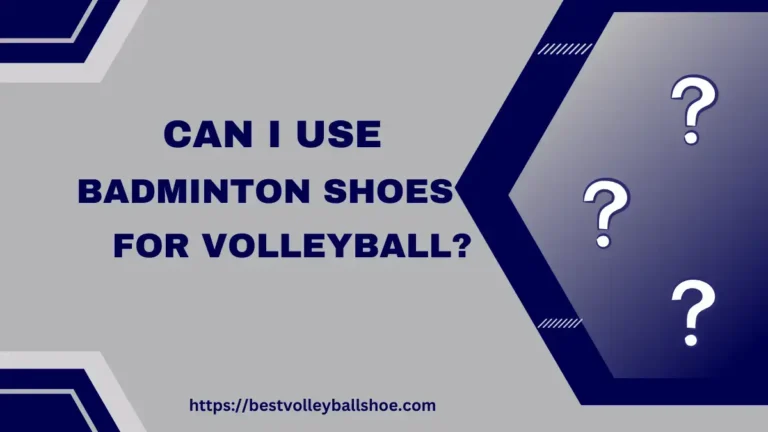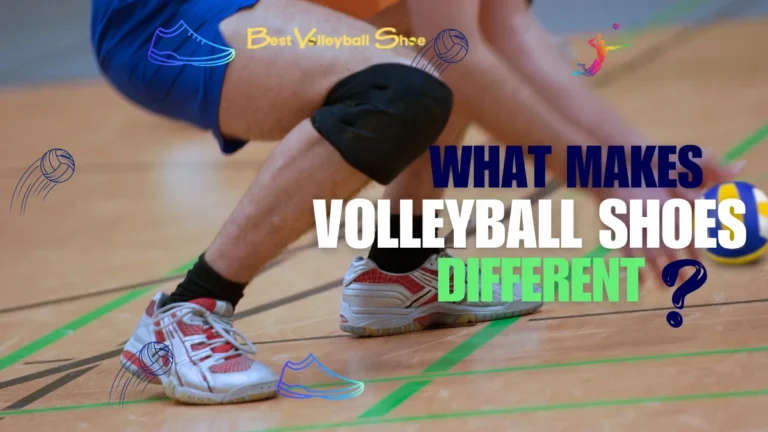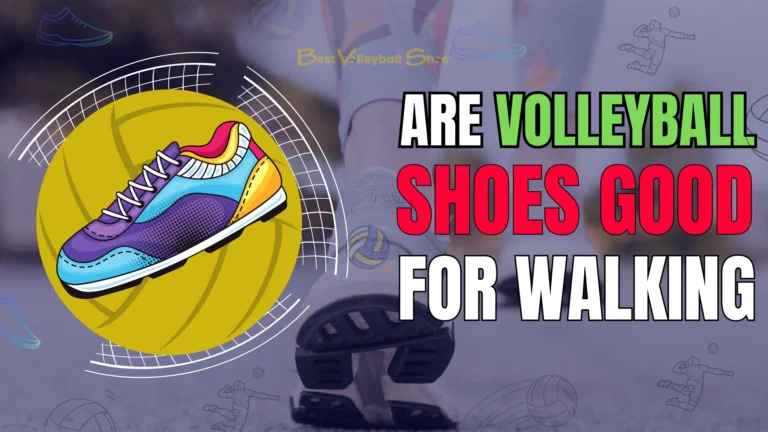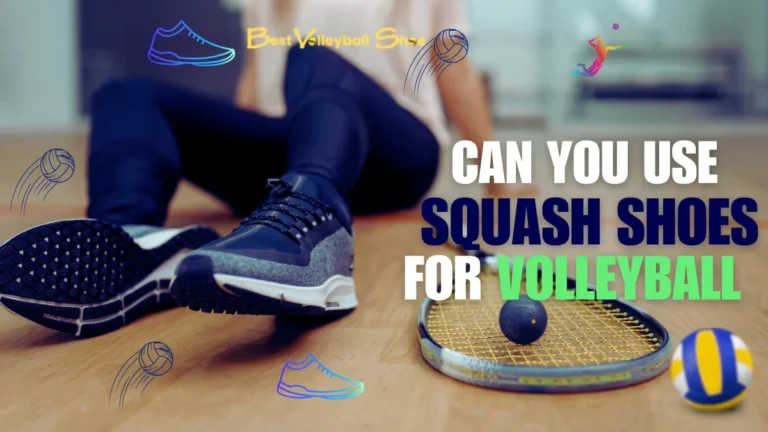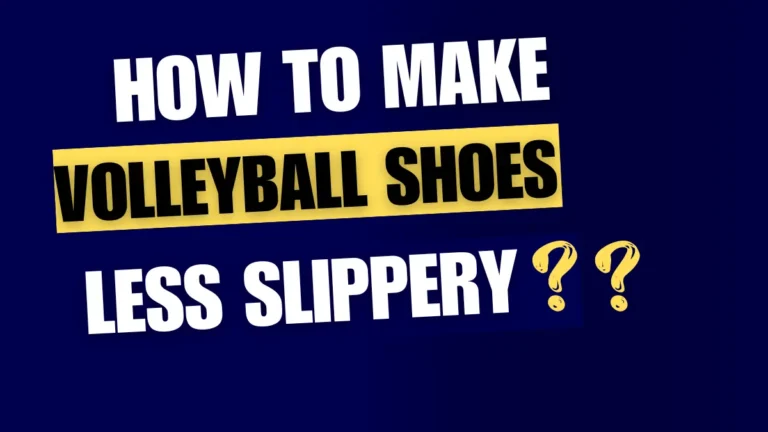What Shoes to Wear If You Don’t Have Volleyball Shoes? All-in-One Guide
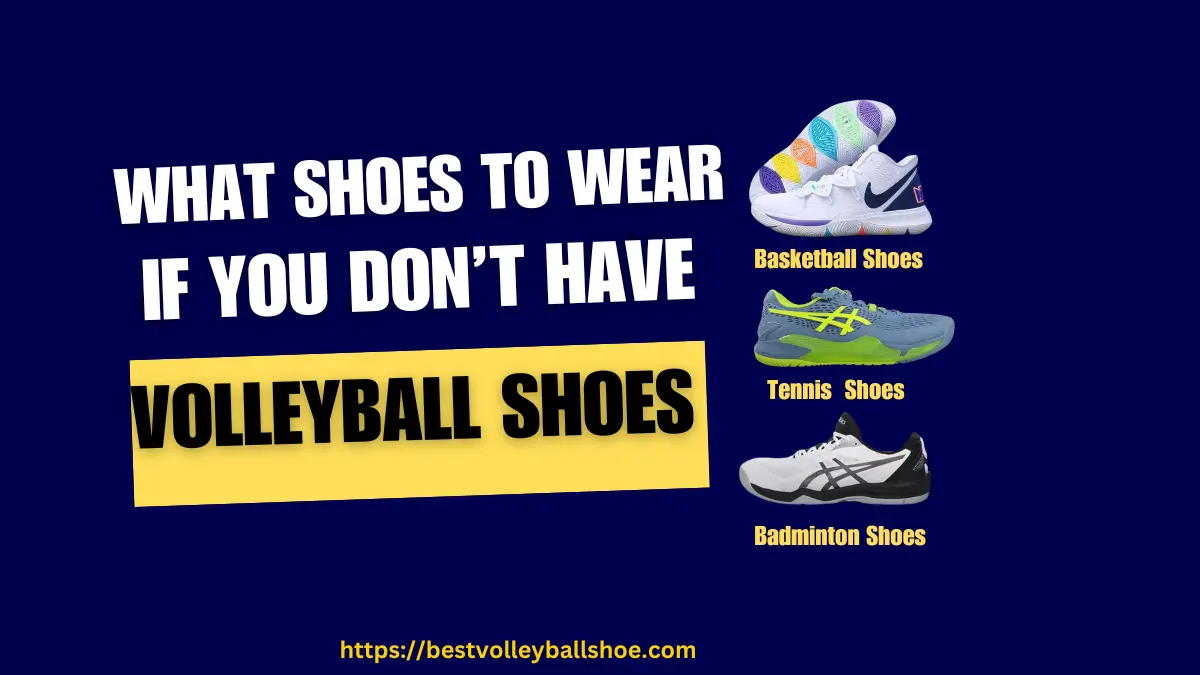
Every man and his dog ask, What shoes to wear if you don’t have volleyball shoes?. If you want to enhance your speed in Volleyball matches, purchase the best Volleyball shoes from the finest brand in 2024. Otherwise, you will face gripping problems. However, here are some great alternative options that make your every game over the moon with perfect shoe balance. Please look over the complete guide and make your mind swift;
What Shoes to Wear If You Don’t Have Volleyball Shoes?
There are three right-as-rain options for every man and his dog that enhance your gaming experience easily;
Basketball Shoes
Basketball shoes are a great option that you can consider when playing volleyball. Although the sports are different, their basic movements are similar. However, both sports require good grip and cushioning for the shoes. They also involve pivoting and agile movements. There are some key differences between these two types of footwear.
If you can, stick with volleyball shoes. This is because the volleyball footwear is designed according to the players’ needs. The shoes have the perfect balance of cushioning, traction, and support for optimal performance on the court.
However, It is also fine to play volleyball wearing basketball shoes. I have personally seen the shoes of professional volleyball players and a considerable number of players were wearing basketball shoes
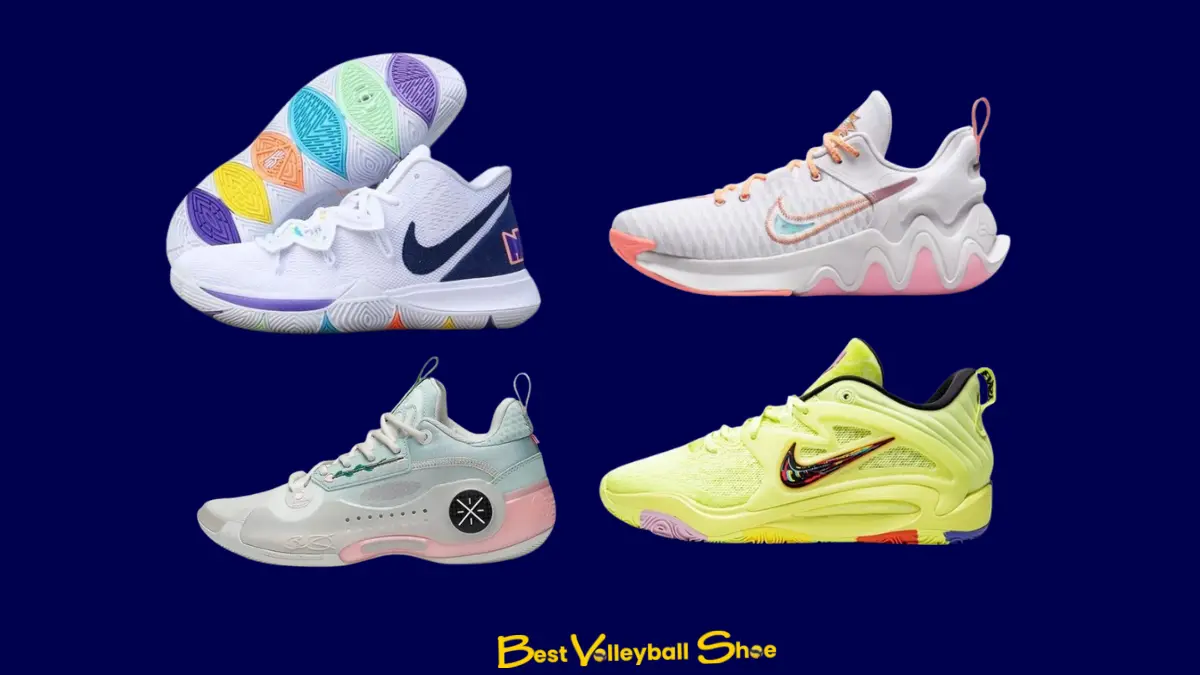
Basketball shoes offer adequate cushioning and stability but they may lack the ankle protection necessary for basketball. While it’s okay to play volleyball with basketball shoes, it’s recommended to use volleyball shoes for the best performance.
Tennis Shoes
Tennis and volleyball shoes have similar dynamics, as both sports require high-speed movements and abrupt direction changes. This requires a shoe with adequate stability and support during gameplay. Some differences exist, but many tennis shoes will also work well for volleyball.
It is important to remember that the difference in arch support between a volleyball and tennis shoe is usually insignificant. Tennis shoes can provide adequate stability and support for volleyball. Many volleyball players wear tennis shoes for matches for comfort, durability, and versatility.
Tennis or volleyball shoes are ultimately a matter of personal preference and style. Volleyball shoes suit players who value comfort, stability, and 360-degree movements. Tennis shoes are better for those who want to have a shoe that provides a good amount of support and is durable.
While there are differences between volleyball and tennis shoes regarding arch support, many tennis shoes will also work well for volleyball. Individual preferences and styles of play will determine which shoe type is best for you. Finally, finding a shoe with the right support and stability for both sports is important.
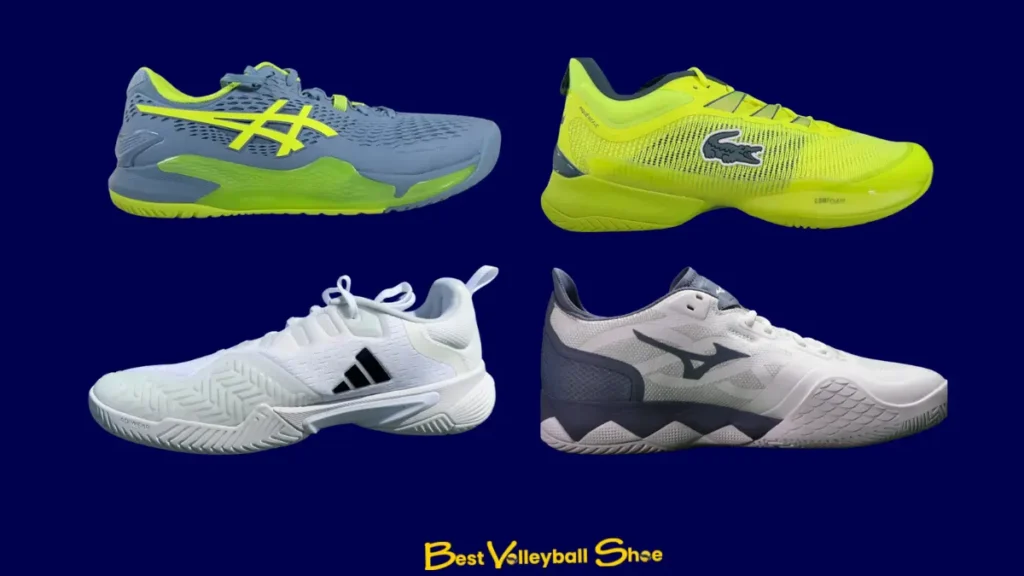
Cross Training Shoes
Cross-training shoes can be a great choice for athletes of all sports, including volleyball. These shoes cater to volleyball players’ specific needs, and offer several features that improve performance and prevent injury. Cross-training shoes are a great option for volleyball because they can accommodate the dynamic movements and rapid direction changes required by the sport.
Conclusively, these shoes make a great choice for volleyball players because of their durability, versatility, and additional protection. Shoes that can accommodate sudden and dynamic changes in direction, adapt to the shoes, absorb impact, and provide ankle support are a great asset for volleyball players who want to maximize their performance and prevent injury.
Dangerous Moves with Non-Volleyball Footwear?
Jumping
Volleyball is without a doubt a sport for jumpers. The shoe must be able to provide the bounce needed for takeoff, as well as cushioning necessary for landing safely. Volleyball players usually jump two feet. If you choose to wear shoes designed for other sports, such as basketball, the cushioning will be different.
Basketballers typically practice a one-foot take-off. In order to jump two feet, like in volleyball, you need a thick, air-bubble sole, similar to what’s found in volleyball shoes. Wearing non-volleyball footwear could cause an injury when jumping.
Rapid and Sudden Directional Changes
Volleyball players require a shoe capable of handling these violently squeaky twists. Shoes with a rounded bottom (like the ones in volleyball shoes), allow you to push off from different angles.
Even though basketball shoes are good for these movements, they do not provide as much support in the lateral direction as volleyball shoes.
Basketball shoes are also heavier than other types of footwear, which can slow you down when making sudden and quick changes in direction.
Landing
Volleyball is a sport that requires you to jump repeatedly. This will wear out your shoes and body. Shoes should be cushioned. It is important to consider this when playing a sport with high impact, such as volleyball.
Non-volleyball footwear also provides some cushioning. However, due to the additional jumping in volleyball, this cushioning can break down faster, which could lead to injury.
Other Sports Shoes That Would Work Well For Volleyball
Badminton
Weight and sole are two of the most important factors in a volleyball boot.
The sole thickness is the most important thing for badminton shoes. A gum rubber sole is used in the construction of good volleyball shoes, as it provides a better grip on indoor courts. The shoes allow for rapid movement without slipping.
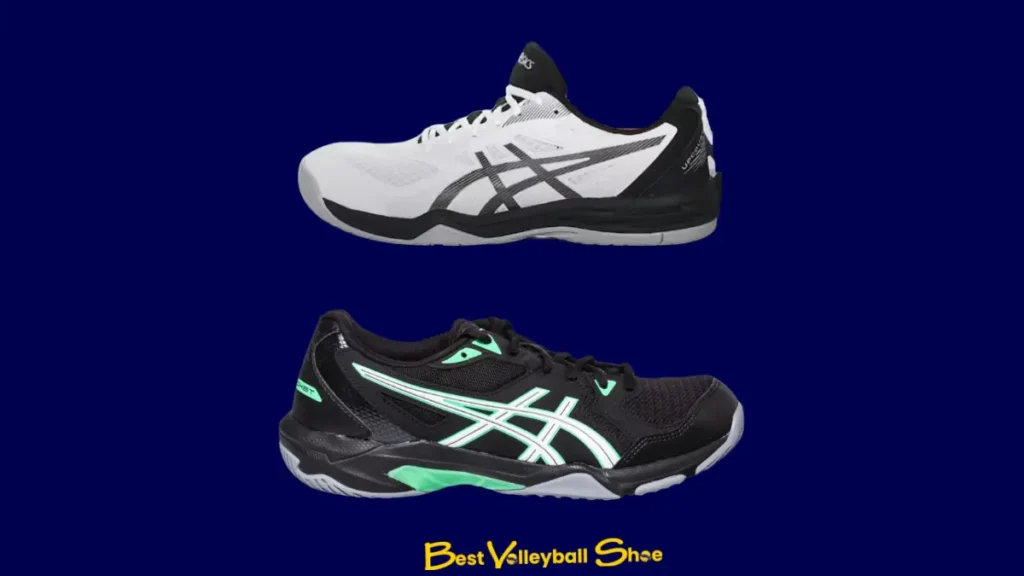
Badminton shoes have thin gum rubber soles, which lower the center of gravity and provide better stability and grip for players. Volleyball shoes have an outsole pattern designed for side-to-side movement. Badminton shoes are thinner because they have a rubber outsole.
Running
Running shoes are not usually recommended for volleyball. Volleyball places different stress on the ankles and feet than running. Running shoes are lightweight and flexible. The shoes are designed to encourage forward movement.
Volleyball shoes have a stiffer and heavier design to protect from the stress of lateral movement and vertical impact. Also, the running shoes do not reduce pressure on ankles, nor will they help to relieve impact on soles when jumping. This increases the risk of sprains and other injuries. For details read my blog on the use of running shoes for volleyball
Benefits of Volleyball Shoes Compared to All Other Shoes
Volleyball is a fast-paced and exciting sport that requires special shoes for players to perform at their best. The shoes that are used for Volleyball games have several advantages over other shoes.
Lightweight and Breathable
The Volleyball shoe is designed to be light and breathable. Materials used in the construction of these shoes, like synthetic or mesh uppers allow for better circulation of air, which keeps feet cool and moist during intense matches. Also, this is important in preventing blisters and foot discomfort so that players can focus on their performance. So always choose the best volleyball shoe brand in 2024.
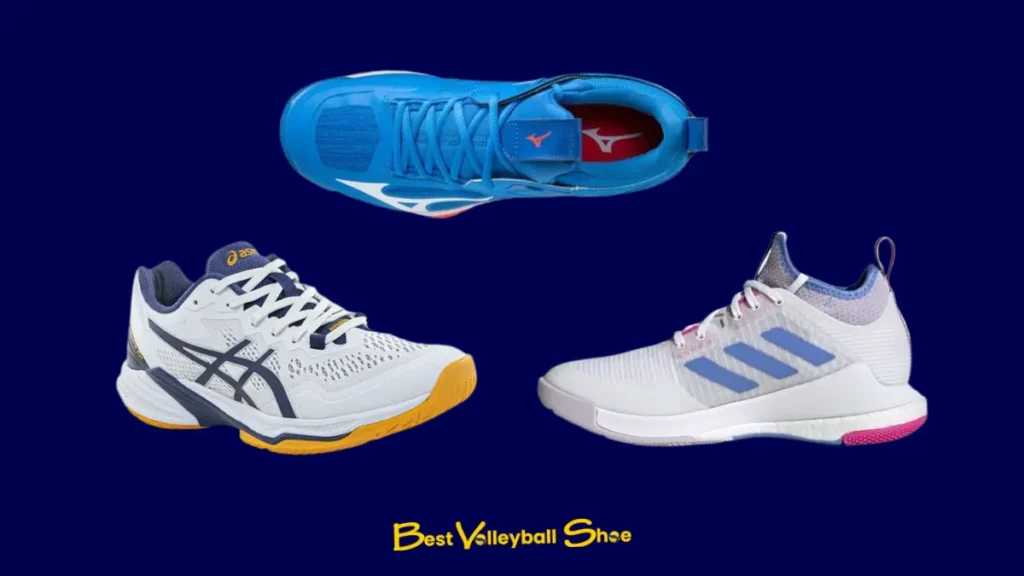
Traction and Grip Enhanced
Best Volleyball shoes have been designed specifically to offer superior grip and traction. Rubber soles on Volleyball shoes feature tread patterns to optimize traction, whether you are playing on synthetic courts, indoor courts or grass fields. The tread patterns on the rubber soles of Volleyball shoes are designed to maximize traction, whether it is on synthetic courts, indoor courts, or grass fields.
Ankle and Heel support
The Volleyball shoe often has additional heel and ankle support. This provides stability and reduces strain on joints. The ankle collars and heel counters protect the ankles and heels against impact and reduce the risk of injury. These features are especially beneficial to players who have weak ankles, or experience ankle instabilities.
Durability and protection
The Volleyball shoe is built to last. These shoes have outsoles that are built to endure the impact of sliding, running, and jumping. They can therefore withstand fast-paced games. The toe box and heels are reinforced for additional protection from impact and injury.
Flexible and cushioned
Volleyball shoes combine flexibility with cushioning. These shoes have cushioned midsoles that reduce the impact when running on hard surfaces. Flexible shoes allow players to quickly change direction and make quick turns without feeling uncomfortable or restricted.
Ankle Support Stability
The Volleyball shoe is equipped with stability and ankle support features. The ankle collars and padding provide protection from twists and sprains. This allows players to move confidently and freely on the court. The stability of the shoe helps absorb shocks and reduce strain on the lower part of the body.
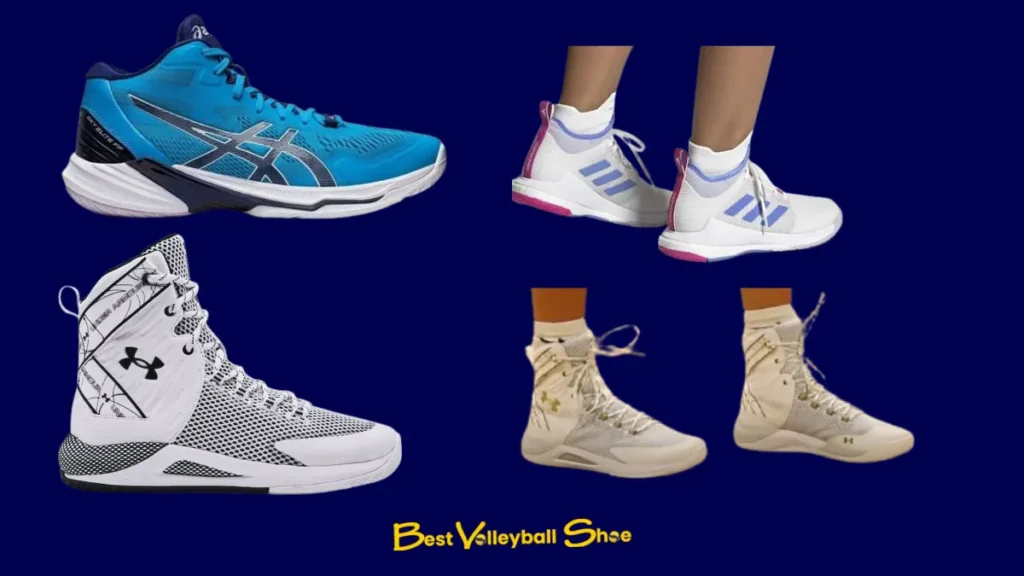
Arch Supports and Cushions
Players with foot problems, such as plantar fasciitis, will find comfort in volleyball shoes that include cushioning and arch support. The arch support distributes pressure evenly over the foot to reduce discomfort and prevent foot fatigue. Volleyball shoes are superior to other shoes that can be used for Volleyball games.
The Bottom Line
In conclusion, volleyball shoes are specifically designed to meet the unique demands of the sport, there are several alternative options available for players who don’t have access to them. Basketball shoes, tennis shoes, and cross-training shoes each offer their own benefits and can provide adequate support, stability, and cushioning for volleyball matches. However, it’s important to note that while these alternatives can enhance your gaming experience to some extent, they may not fully replicate the specialized features of volleyball shoes, such as low-to-ground design, optimal traction patterns, and ankle support.
